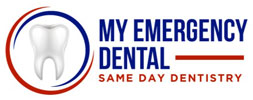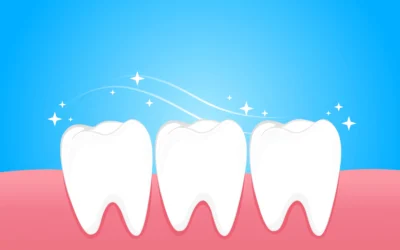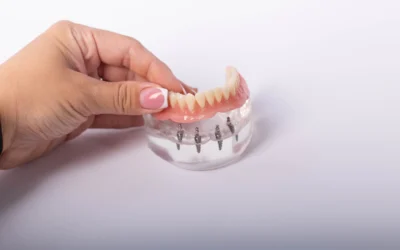Mouth sores are common and are often treatable, depending on how serious they are. In most cases, mouth sores are painful and irritating, and if visible, the individuals who have them can become self-conscious. What exactly are mouth sores, what causes them, and how do you treat them? We’re glad you asked.
About Mouth Sores
Mouth sores are lesions or wounds that grow in and around the mouth, including the roof or lining of the mouth, gums, tongue, inside the cheeks, and inside or outside the lip. It’s always important to monitor any sores in the mouth because while they may not be severe, they could be a warning of bigger issues happening within the body. If they don’t heal within two weeks, consult a professional healthcare provider.
Symptoms of Mouth Sores
While symptoms between individuals vary, the most common ones include:
- Sore gums
- Bad breath
- Mouth pain
- Colored patches
- Developing blisters
- Redness around the area(s)
- Bleeding gums or wounds
- Difficulty eating, drinking, or swallowing
Common Types of Mouth Sores
Cold sores: A cluster of blisters filled with fluid tend to form on the outside of the mouth and around the lips. Cold sores or fever blisters are caused by the herpes simplex virus.
Canker sores: Also known as aphthous stomatitis or aphthous ulcers, canker sores are small, oval-shaped, shallow ulcers that appear inside the mouth, sometimes under the tongue. They can be colored red, yellow, or white, and they are typically harmless. However, if you have recurring canker sores, this may be the initial sign of other diseases or a vitamin deficiency.
Leukoplakia: Most commonly seen in smokers, leukoplakia is usually harmless, but if serious enough, it may be a sign of oral cancer. It appears in gray or white patches on the lining of the mouth or tongue.
Oral lichen planus: Lichen planus is a skin rash that can appear anywhere on your skin or in the mucous membranes inside the mouth. Instead of producing a rash on the skin, oral lichen planus causes open sores and raised, white patches anywhere inside the mouth.
Oral thrush: Oral thrush is also called candidiasis, a fungal infection that appears as white spots on the tongue, gums, inner cheeks, or tonsils. It can be scraped off, but unless it’s treated, it may come back. It is most common in infants and toddlers, but it can quickly spread to other parts of the body and cause complications in individuals with weakened immune systems.
Possible Causes of Mouth Sores
Anemia: Anemia means your blood lacks healthy red blood cells to carry oxygen and therefore supply iron. Signs of iron deficiency anemia include inflammation of the tongue and dry mouth.
Oral cancer: Oral cancer can start as a painless mouth sore. However, if it doesn’t heal and seems to worsen, it may be a sign of cancer. It may appear as red or white lesions, lumps, or ulcers, and it spreads quickly. 70% of oral cancer cases are linked to tobacco products and usually start as a seemingly harmless mouth sore.
Bite injuries: Do you ever accidentally bite your tongue while eating? Or maybe you subconsciously bite the inside of your cheek when you’re stressed. Either way, lots of people do this, and it’s not something to worry about. These minor bite injuries are normal; just keep an eye on it and make sure it doesn’t get infected.
Dental work: Any dental or orthodontic work such as braces or dentures that don’t fit properly may irritate the mouth and cause canker sores. As long as the irritation isn’t recurring, the sores should heal within 7 to 10 days.
Celiac disease: Celiac disease is an autoimmune disease that damages the small intestine when an individual consumes gluten. Gluten is a protein commonly found in most breads. One of the symptoms of celiac disease is persistent aphthous ulcers or canker sores due to nutritional deficiencies.
Infectious Mononucleosis (Mono): Also called “the kissing disease,” and abbreviated to “Mono,” infectious mononucleosis is a virus that is spread through saliva. The Epstein-Barr virus (EBV) is the culprit for Mono, and some of its symptoms are mouth sores, swollen tonsils, and mouth rashes.
Sexually transmitted disease (STD): Believe it or not, side effects of STDs include mouth sores such as cold sores and fever blisters. Development of these sores usually occurs during the first stage of syphilis, herpes simplex virus, and human papilloma virus.
Chemotherapy and/or radiation: Because cancer treatments kill all cells within a targeted area, the treatments can kill both cancer cells and healthy ones. Healthy and cancer cells are rapidly growing, which leaves the chance for both kinds to be damaged by radiation and chemotherapy. This makes it hard for your mouth to heal since its damage is recurring. Cancer treatment-related mouth and esophagus sores can be painful and feel like burns.
Weakened immune systems: If you’re sick or already have a condition that weakens your immune system, you have a higher risk of developing mouth sores. This is due to your immune system already fighting other diseases, and it has less of a chance to fight off any viruses that cause mouth sores.
While genetics, daily habits, vitamin deficiency, and environment play a role in determining the cause of mouth sores, the exact cause of some mouth sores is unknown. Regular dental exams are essential, as it’s when many concerning mouth sores are noticed and treated.
Treatment & Prevention for Mouth Sores
For treatment and prevention methods that best suit you, always consult a doctor or pharmacist.
Here are some general treatment and prevention methods to consider:
Treatment methods for acute mouth sores:
- Avoid picking at the sores
- Gargle and rinse mouth with warm salt water
- Take an over the counter (OTC) medicine that relieves pain
- Mix hydrogen peroxide and water to create a healing paste (or other topical treatments)
Prevention methods for mouth sores include:
- Limit alcohol consumption
- Avoid spicy or acidic foods
- Take vitamin supplements
- Practice routine oral hygiene
- Don’t use any tobacco products
- Use a soft toothbrush and antimicrobial mouth rinses
- Consider an OTC medicine to boost your immune system
Call My Emergency Dental Same Day Dentistry for Procedures That Can’t Wait
My Emergency Dental is a new dental office in Marietta, Georgia. Call 470-523-8118 now to schedule an appointment or to learn more about us. Walk-ins are welcome, Monday through Sunday, 8 a.m. to midnight.
Our services include general dentistry, such as extractions, root canals, crowns, and fillings. Emergency services include fixing chipped teeth, providing dentures and partial dentures, urgent oral surgeries, abscess draining, and more. We also serve our patients with preventative, restorative, and cosmetic dentistry.



